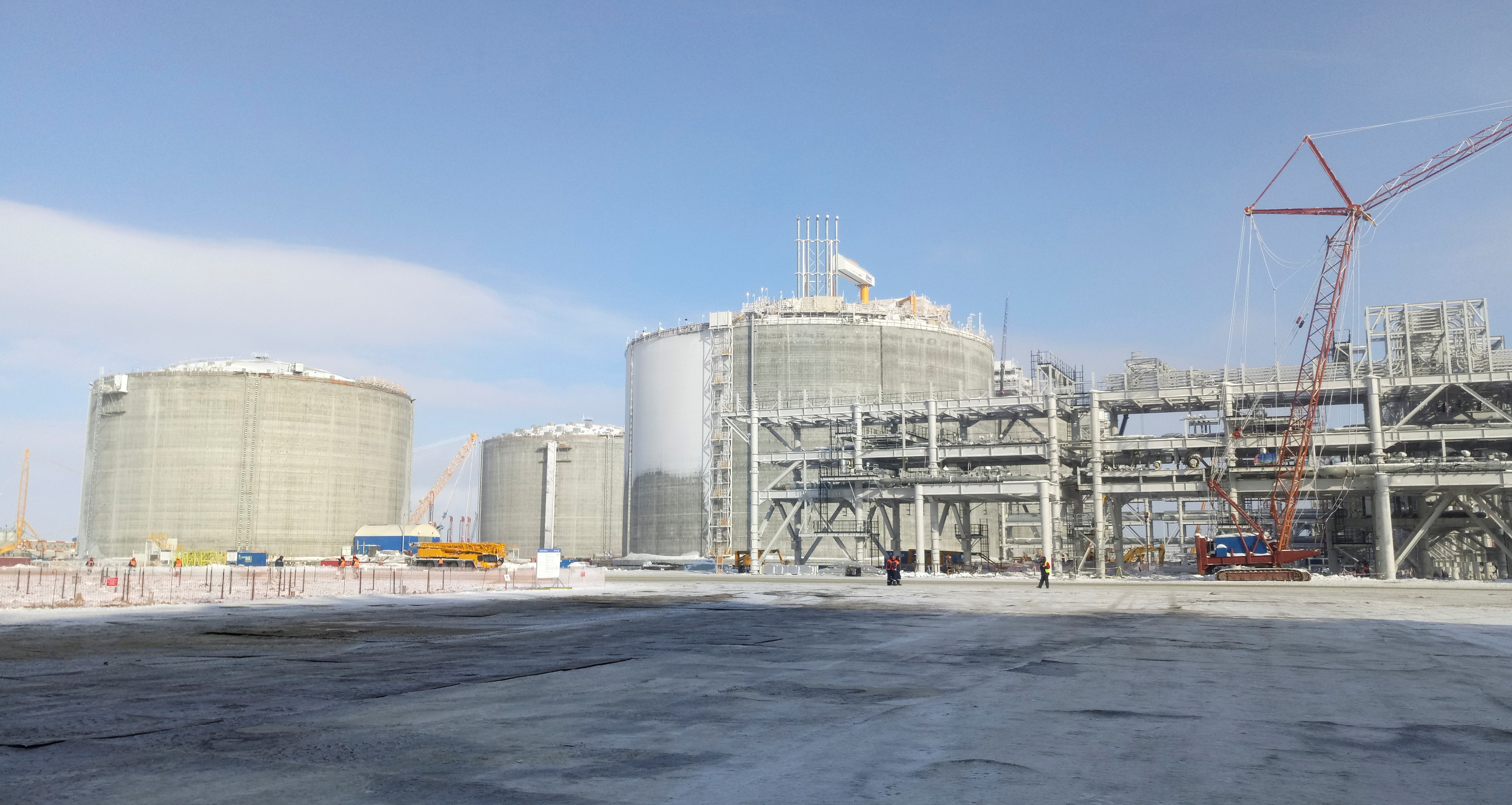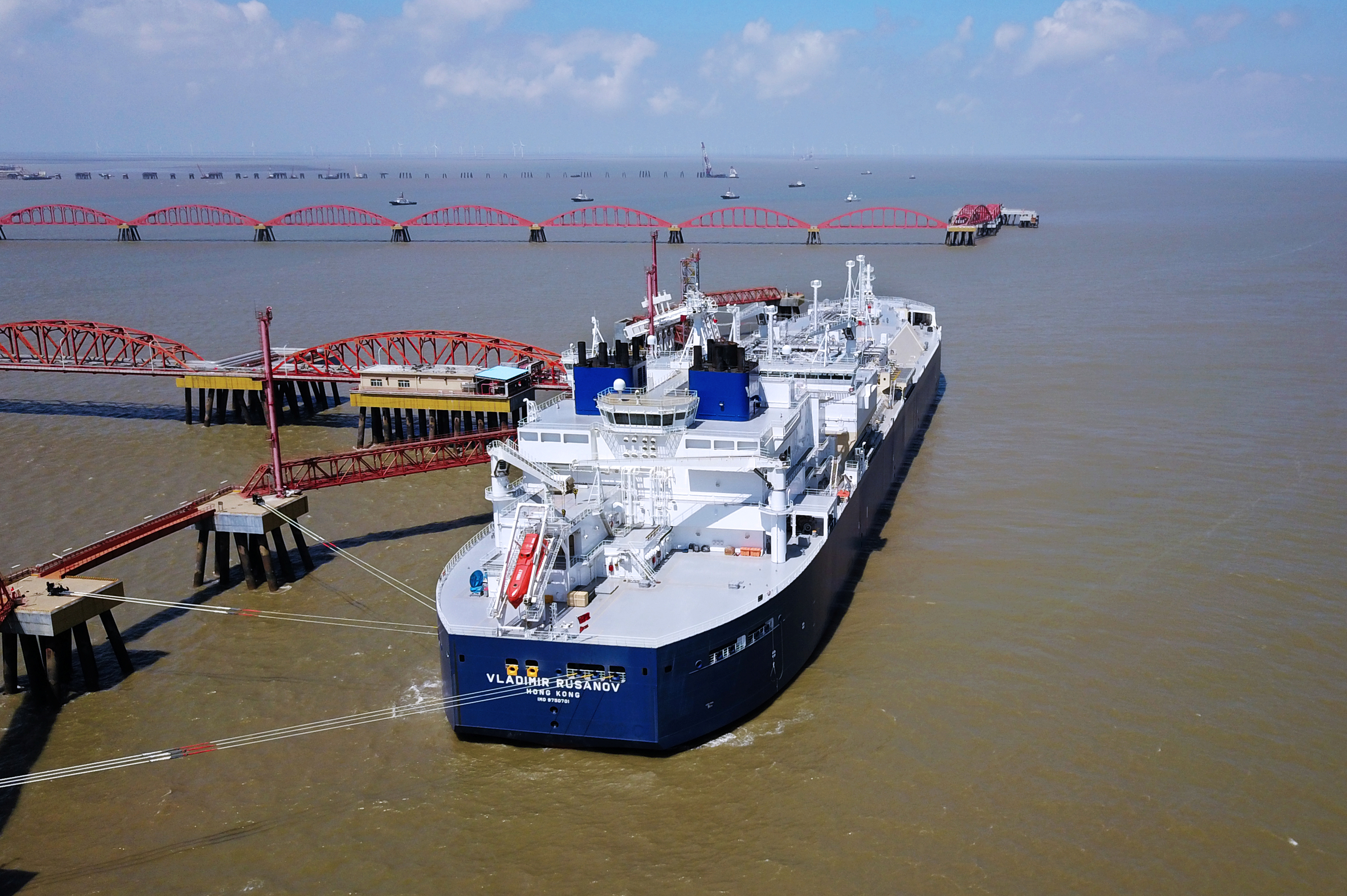Novatek’s Yamal LNG project doubles its production capacity ahead of schedule
The second production line came online last month, and sent its first shipment out last week, six months ahead of schedule.

Russian natural gas major Novatek and its French partner Total announced the commissioning of the second production line at their Yamal Liquefied Natural Gas facility on the Arctic Yamal peninsula. The doubling of capacity comes six months ahead of schedule and follows the opening of the first production line, or train, in December 2017.
The second train began operating on July 12 when the first natural gas was fed into the plant and the first LNG was placed into storage tanks on July 21.
“Following the successful start-up of Yamal LNG in December last year, the first shipment from the second train ahead of schedule is another major milestone for this world-class LNG project,” commented Patrick Pouyanné, chairman and CEO of Total.
In the first eight months of 2018 the facility has already produced in excess of 3.5 million tons of natural gas. The company uses a fleet of purpose-built ice-class LNG carriers to transport its natural gas to markets in Europe and Asia. Thus far these vessels contracted by Novatek completed 47 round trip voyages along the Northern Sea Route.
Yamal LNG gains market share
Novatek’s Arctic operations already represent a significant share of global LNG production capacity. Each of the two lines has a production capacity of 5.5 million tons of LNG per year. The third train is expected to start up in early 2019.
“The total operating capacity of the two working LNG trains already approximates about 3.5 percent of the global LNG market and becomes a significant project in the context of the global LNG landscape. Our strategic goal is to produce between 55 and 60 million tons per year by 2030,” confirms NOVATEK’s Chairman of the Management Board Leonid Mikhelson.
The Yamal facility also benefits from low operating environment temperatures increasing the efficiency of the natural gas cooling process. According to Novatek the facility was producing at 109 percent of its capacity during the winter months. To take advantage of Arctic temperatures, the company will test a different type of liquefaction technology in its smaller fourth production line. This train will only have a capacity of 900,000-940,000 tons per year, but will be used as a test bed for future Arctic LNG installations.
The company continues to push ahead with its Arctic LNG operations looking to further expand Yamal LNG with a third production line as well as to open an entirely new facility, named Arctic LNG 2, by 2023. In a further sign that Novatek’s LNG endeavors are gaining traction, it announced the beginning of drilling operations in shallow waters in the Ob Bay in the North-Obskiy license areas. Using a floating drilling rig leased from Russian energy company Gazprom, Novatek hopes that gas from this area will supply a future Arctic LNG 3 production facility.
Yamal LNG delivered to Asia
LNG deliveries during the first six months of 2018 were focused on transshipment hubs in Europe, mainly France and the Netherlands. Novatek, however, aims to deliver LNG to Asia during the summer months when more favorable ice conditions allow natural gas carriers to sail eastwards along the NSR. The company stands to reap greater financial rewards selling its LNG in Asia as spot market prices are higher in the region compared to Europe.
In early July, two purpose-built Arc7 ice-class LNG tankers the Vladimir Rusanov and Eduard Toll, completed the first-ever delivery of LNG in an eastward direction straight from the Yamal production facility to customers in Asia. Both vessels completed the voyage in a quick-paced 9 days with no icebreaker support and arrived at the Chinese port of Jiangsu Rudong on July 20th.

The vessels were welcomed in Jiangsu by Alexander Novak, the Minister of Energy of Russia and Nur Bekri, the Director of the National Energy Administration of China. The vessels completed the journey in just 19 days, compared to 35 days for a traditional route through the Suez Canal.
“These shipments were the first voyages with Russian LNG via the Northern Sea Route without escort of an icebreaker. Moreover, they mark the start of regular LNG shipments via the Northern Sea Route, which was only made possible due to the unique characteristics of ice-class LNG carriers developed for NOVATEK to serve the Arctic projects,” explains Mikhelson.
Using new LNG carriers during summer
The commissioning of the second production line was also noteworthy as some of Yamal’s LNG will be shipped using another type of LNG carrier. To further boost deliveries the company announced that a number of less ice-capable Arc4 LNG carriers will be utilized to transport natural gas.
The Atlanticmax Ice2 (Arc4) LNG carrier Pskov departed Sabetta with the first batch of gas produced by the second production line on August 9th bound for the transshipment hub in Montoir, France where it is expected on August 19th. The Arc4 carrier, operated by Russian shipping company Sovcomflot, is part of a fleet designed to transport gas to and from existing global LNG, particularly from Russia’s first LNG facility Sakhalin-2 and the upcoming Vladivostok-LNG terminal.
The vessels are capable of operating without icebreaker escort in light ice conditions on the NSR during the summer months. In design they are similar to the more capable purpose-built Arc7 carriers and are able to transport 170,000m³ of LNG on vessels 299.9 meters long and 45.8 meters wide.
To further maximize efficiencies and reduce transportation costs Novatek plans to use these cheaper-to-operate Arc4 carriers in addition to the Arc7 carriers. To this end the company signed a cooperation agreement with Sovcomflot earlier in the summer with the aim to develop a strategic partnership to transport LNG from its Yamal and Arctic LNG 2 facilities. As Novatek aims to produce between 50-60 million tons of LNG by 2030 it needs to diversify its transport options beyond the small fleet of specialized Arc7 LNG carriers.